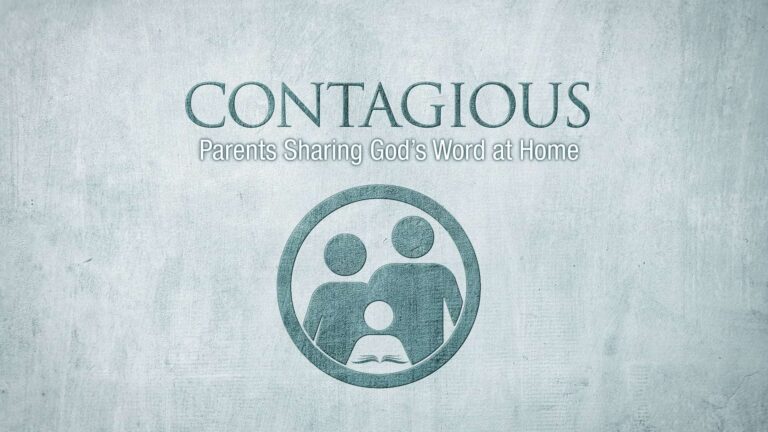
O Holy Night: A FREE Christmas Devotion
Join us this Advent season for O Holy Night, a FREE resource from Walk Thru the Bible!
Read MoreDo you sometimes hear words in Christian circles that are unclear or confusing? Oftentimes those words relate to the Bible itself: how it came to be, how it was put together, how God uses it, and more.
In our first post of this series, “5 Words for Bible Lovers to Know,” we talked about revelation—about how God reveals Himself to us through Scripture. In the second post, we looked at inspiration—how God inspired the Scriptures. In the third, we looked at canonization—how the Bible was put together. In the fourth, we looked at illumination—how we understand His Word. In this article, we’ll talk about the last word in the series: preservation.
Through the centuries, people have given their lives for it—copying, distributing, and teaching it. Some have staked their lives on it, and they were burned at the stake.
It has been banned, forbidden, burned, but never destroyed. Living and active, it has touched countless lives through history.
It is God’s Word, a gift that He uses to reveal Himself and to transform us into the likeness of His Son.
But how could a book so ancient still exist and be so readily available today?
God has protected His Scriptures through preservation beginning from their inception throughout history.
We know that the Scriptures were perfect in the first manuscript. That inspiration was a supernatural event. But now, 25,000 manuscripts later, how do they hold up? Surely there are errors now, after all this time.
Psalm 12:6 says, “The words of the Lord are pure words, like silver refined in a furnace on the ground, purified seven times.”
We don’t have those original manuscripts; we have copies. But the English Bible that you have on your table, your laptop, or phone is so reliable, so worthy of trust that you can be assured that you are reading God’s Word.
Any changes that might have been made in copying the originals were small—more issues of interpretation than anything. Scribes who copied the Scriptures by hand were meticulous; dare I say, obsessive in their commitment to the task.
For example, they often did tests for accuracy. Hebrew is read from right to left. There are no spaces between words, so it’s just row upon row of letters.
So the scribes would count the number of characters to find the middle character in the original that they’re copying from as well as in their copy. They would count from the front and the back. If, for example, the middle letter from the front is 14,812 and the same letter from the back is 14,812, they would know that at least they didn’t skip a letter. That kind of meticulousness boggles the mind.
The scribes treated God’s Word with the utmost respect. No doubt, they well knew the strong words in Revelation against changing Scripture. “I warn everyone who hears the words of the prophecy of this book: if anyone adds to them, God will add to him the plagues described in this book, 19 and if anyone takes away from the words of the book of this prophecy, God will take away his share in the tree of life and in the holy city, which are described in this book” (Revelation 22:18).
“The grass withers and the flowers fall, but the word of our God endures forever” (Isaiah 40:8).
There’s an old rhyme attributed to John Clifford called “The Anvil of God’s Word.” The narrator of the poem stops by a blacksmith’s shop and hears the anvil ring from the blow of a hammer. Looking in, he sees old hammers, worn and beaten, lying on the floor.
He asks the blacksmith, “How many anvils have you had, if you’ve battered this many hammers?”
The blacksmith replies, “Just one. The anvil wears the hammers out, you know.”
Then the narrator likens God’s Word to an anvil: although skeptics through the centuries have laid countless blows on God’s Word, it remains unharmed, standing strong, while the hammers are all destroyed. It’s a beautiful parable of the Word of God.
World dictators have beat upon the Word of God. They have said, “We’re going to exterminate this book!”—and yet they are dead and gone. One of those guys was Marcus Aurelius. In Walk Thru the Bible’s video and streaming series called Chiseled, there’s a bust of Marcus Aurelius on the set. The irony of that makes me smile—that Marcus is a mere prop in a video series about how God chisels our character.
God protects the Bible from extinction.
“Heaven and earth will pass away, but my words will never pass away” (Matthew 24:35).
The Bible is not just for a few people. The Bible is for all people.
Why? Because of God’s covenant with Abraham in Genesis 12: every people group on the planet is within the scope of God’s love. In the book of Ruth, we see that His covenant, His heart was big enough for Ruth, a foreigner and a refugee. If God’s love is for all people, then so is God’s Word.
The Bible was written in the language of common people, because it’s a book for the common man and woman.
I cringe when pastors say, “Oh, this passage is like a fine Swiss watch. Let me show you how these gears fit so beautifully together. You can’t figure this out on your own. You haven’t had the training.” That kind of attitude makes me nervous because God’s Word is for everyone, everywhere, for all time. And the Bible changes everything.
God preserves His Word from error, from extinction, and from exclusivity. The Bible has stood the test of time, and it will live on, long after we are gone from this life.
*****
Phil Tuttle is the president of Walk Thru the Bible.

Join us this Advent season for O Holy Night, a FREE resource from Walk Thru the Bible!
Read More
Buddhism used to be considered only an "Asian religion," but now it's worldwide. Hollywood has taken to Buddhism, so you've been influenced by Buddhism in the messages of our culture, probably without even noticing.
Read More
Our new, FREE series called CONTAGIOUS: Parents Sharing God’s Word at Home, is a 5-session video course that helps parents learn how to share God’s Word with their kids.
Read More